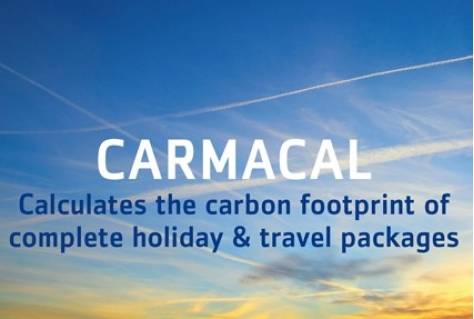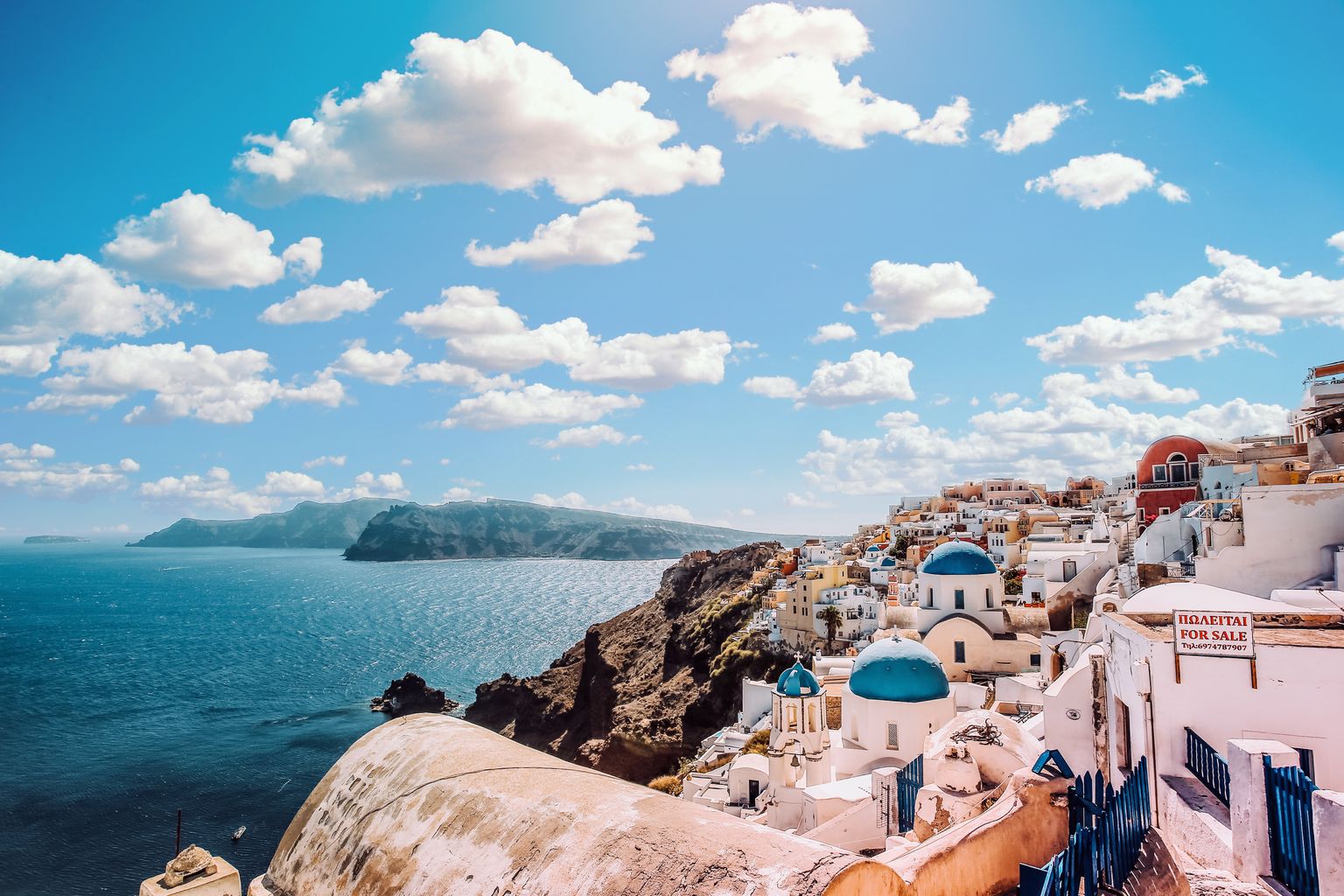
Traveling is good for the economy. But is travel also good for the climate? How sustainable is it, if we travel more and more? Ibuildings developed for and with the travel industry CARMACAL, a calculator that calculates the CO₂ footprint, the carbon footprint, of holiday trips. An innovative project, awarded with several major prizes. Paul Peeters, professor of Sustainable Tourism at NHVT University of Applied Sciences, and Frank Oostdam, director of ANVR, were involved in the project.
CARMACAL is the first CO₂ calculator, or carbon calculator, with which travel organizations can easily calculate the CO₂ emissions of their travel offer. A unique tool, which is not limited to just flights, for example, but takes all the elements of a trip with it. The calculator has virtually all flights in the world and the CO₂ footprint of 25 different types of transport, more than 700,000 accommodations and more than 20 types of excursions/activities. Does an accommodation have a high carbon footprint? Then perhaps there is another possibility to spend the night. Is that domestic flight necessary or is it also possible by train? CARMACAL provides insight to adjust or adequately compensate the CO₂ impact of the total travel package.
CO₂-aware
According to Frank Oostdam of the ANVR, CARMACAL makes travel organizations aware of the impact of travel on the climate. “With a simple, affordable tool they can give sustainability in the form of carbon management a permanent place in the corporate strategy. With the calculator they have a lot of practical possibilities to make their travel products more CO₂ neutral. Are you changing a component? Then you immediately see what the effect is. The next step is for tour operators to communicate the CO₂ footprint of travel products to their customers, for example with a CO₂ label. In this way, consumers can make environmentally conscious choices or offset their footprint”.
Sustainability and sales
CARMACAL is the result of a grant project in which knowledge centres, colleges, the ANVR and a number of travel organisations worked together.
Wiki
The project team decided to put all the data on transport, accommodation and excursions/activities of the participating tour operators into a computer model to calculate them. This was no easy task. The data was often unstructured, sometimes incomplete and stored in all kinds of file formats. If this was the case with one tour operator, what would it be like with the others? Just as unstructured, as it turned out. The best solution to unlock the data seemed to be a wiki. Solid, but technical. Not really user-friendly for ’normal’ users, such as the tour operators who started working with it. “We needed a professional IT developer who could provide a workable web application,” says Paul Peeters.
Knowledge, skill and guidance
Ibuildings picked up the glove. Within a tight budget and timeframe and with a fixed but very diverse package of wishes and requirements. Paul Peeters thinks they did an excellent job. “As expected, Ibuildings brought the right technical knowledge and skills. But at least as important is the leading role they played in channelling all the diverse wishes of the tour operators. They trumpeted us to the bone. What do you need and why? Could it be any other way? Do the others want this too? That’s how we got back to the core from which an admirably simple web application came into being.”
On time and on budget
The wiki was a given at the time. So Ibuildings built an accessible user application that was linked to the wiki with an API. At a later stage, on the advice of Ibuildings, the wiki technology was abandoned and all data was transferred to more common databases, making the application faster and more reliable. Paul Peeters is satisfied with the cooperation. “Ibuildings delivered the application within budget and exactly on time. They were always on time. With their extensive IT experience and the structure they put into the project, they made a valuable contribution to the success of CARMACAL”.
Internationally acclaimed
CARMACAL has won several awards in a short period of time:
- 2017: Winner 13th UNWTO Award for Innovation in Research and Technology, innovation award World Tourism Organization of the United Nations
- 2016: 3rd place at RAAK-Award for leading applied research at universities of applied sciences
- 2016: Winner WTTC Award for Innovation, innovation prize World Travel & Tourism Council
- 2015: Winner of the Groene Veer award for sustainable entrepreneurship in the Dutch travel industry
According to one of the jury reports, CARMACAL is “unique in the world and innovative, can be easily communicated and attracts international attention, which will have a major impact on the sustainability of tourism”. And that’s what Ibuildings likes to work on.

